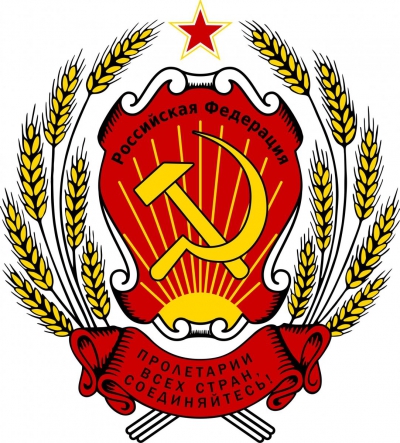Boris Nikolayevich Yeltsin (Russian: ; 1 February 1931 23 April 2007) was a Russian and Soviet politician who served as the first president of Russia from 1991 to 1999. He was a member of the Communist Party of the Soviet Union from 1961 to 1990. He later stood as a political independent, during which time he was viewed as being ideologically aligned with liberalism and Russian nationalism.
Yeltsin was born in Butka, Ural Oblast. He grew up in Kazan, Tatar ASSR. After studying at the Ural State Technical University, he worked in construction. After joining the Communist Party, he rose through its ranks, and in 1976 he became First Secretary of the party's Sverdlovsk Oblast committee. Yeltsin was initially a supporter of the perestroika reforms of Soviet leader Mikhail Gorbachev. He later criticized the reforms as being too moderate, and called for a transition to a multi-party representative democracy. In 1987 he was the first person to resign from the party's governing Politburo, which established his popularity as an anti-establishment figure. In 1990, he was elected chair of the Russian Supreme Soviet and in 1991 was elected president of the Russian Soviet Federative Socialist Republic (RSFSR). Yeltsin allied with various non-Russian nationalist leaders, and was instrumental in the formal dissolution of the Soviet Union in December that year. With the dissolution of the Soviet Union, the RSFSR became the Russian Federation, an independent state. Through that transition, Yeltsin remained in office as president. He was later reelected in the 1996 election, which was claimed by critics to be pervasively corrupt.
Yeltsin transformed Russia's command economy into a capitalist market economy by implementing economic shock therapy, market exchange rate of the ruble, nationwide privatization, and lifting of price controls. Economic volatility and inflation ensued. Amid the economic shift, a small number of oligarchs obtained a majority of the national property and wealth, while international monopolies came to dominate the market. A constitutional crisis emerged in 1993 after Yeltsin ordered the unconstitutional dissolution of the Russian parliament, leading parliament to impeach him. The crisis ended after troops loyal to Yeltsin stormed the parliament building and stopped an armed uprising; he then introduced a new constitution which significantly expanded the powers of the president. Secessionist sentiment in the Russian Caucasus led to the First Chechen War, War of Dagestan, and Second Chechen War between 1994 and 1999. Internationally, Yeltsin promoted renewed collaboration with Europe and signed arms control agreements with the United States. Amid growing internal pressure, he resigned by the end of 1999 and was succeeded by his chosen successor, Vladimir Putin, who was serving as prime minister. He kept a low profile after leaving office and was accorded a state funeral upon his death in 2007.
Yeltsin was a controversial figure. Domestically, he was highly popular in the late 1980s and early 1990s, although his reputation was damaged by the economic and political crises of his presidency, and he left office widely unpopular with the Russian population. He received praise and criticism for his role in dismantling the Soviet Union, transforming Russia into a representative democracy, and introducing new political, economic, and cultural freedoms to the country. Conversely, he was accused of economic mismanagement, overseeing a massive growth in inequality and corruption, and sometimes of undermining Russia's standing as a major world power.
The Congress of People's Deputies of the Russian SFSR (Russian: Съезд народных депутатов РСФСР) and since 1991 Congress of People's Deputies of the Russian Federation (Russian: Съезд народных депутатов Российской Федерации) was the supreme government institution in the Russian SFSR and in the Russian Federation from 16 May 1990 to 21 September 1993. Elected on 4 March 1990 for a period of five years, it was dissolved (without constitutional authority) by presidential decree during the Russian constitutional crisis of 1993 and ended de facto when the Russian White House was attacked on 4 October 1993. The Congress played an important role in some of the most important events in the history of Russia during this period, such as the declaration of independence of Russia from the USSR (June 1990), the rise of Boris Yeltsin, and economic reforms.

1990May, 29
The Russian parliament elects Boris Yeltsin as president of the Russian Soviet Federative Socialist Republic.
Choose Another Date
Events on 1990
- 2Aug
Gulf War
Iraq invades Kuwait, eventually leading to the Gulf War. - 8Aug
Gulf War
Iraq occupies Kuwait and the state is annexed to Iraq. This would lead to the Gulf War shortly afterward. - 23Aug
Gulf War
Saddam Hussein appears on Iraqi state television with a number of Western "guests" (actually hostages) to try to prevent the Gulf War. - 28Aug
Kuwait
Iraq declares Kuwait to be its newest province. - 28Nov
Margaret Thatcher
British Prime Minister Margaret Thatcher resigns as leader of the Conservative Party and the prime ministry, and is succeeded as both by John Major.

 English
English  español
español  français
français  português
português  русский
русский  العربية
العربية  简体中文
简体中文 